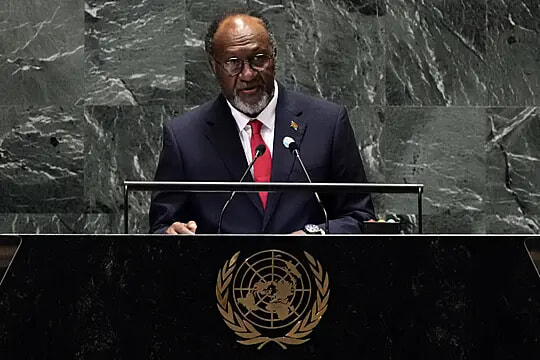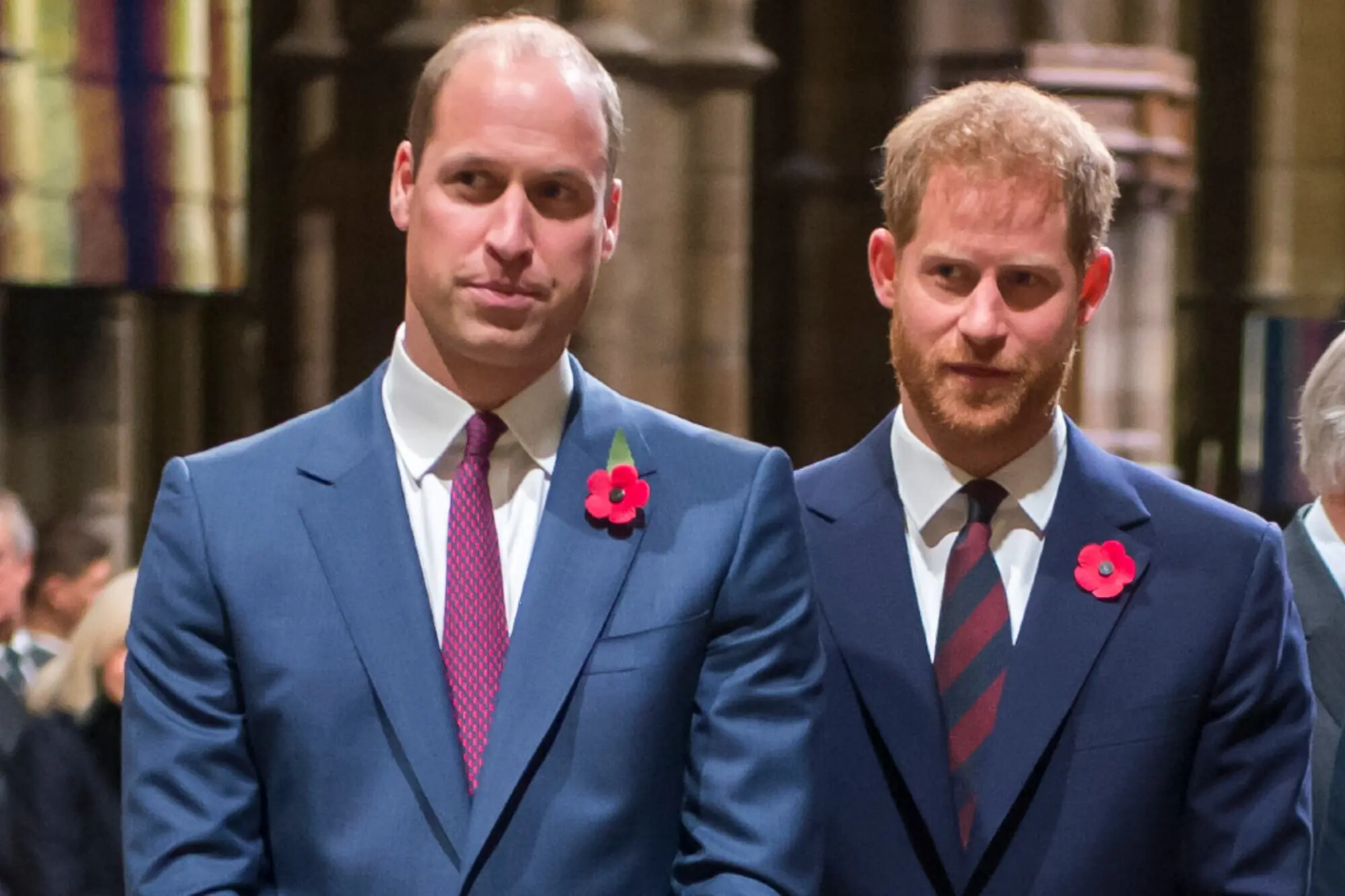
Scientists Have Discovered a Brand New Blood Type... That Only One Person on Earth Has
Wild!
Published June 30, 2025
Advertisement
Advertisement
1. The Discovery of an Extraordinary Blood Type

In a groundbreaking revelation for transfusion science, researchers have officially identified the world’s rarest blood type, “Gwada negative,” in a woman from the French Caribbean island of Guadeloupe.This newly classified blood group marks the 48th system recognized by the International Society of Blood Transfusion (ISBT), highlighting just how much remains undiscovered in human biology.The discovery journey began in 2011 when the woman, living in Paris, underwent routine medical testing before surgery and presented an unclassifiable antibody.For eight years, the anomaly remained unsolved, as existing diagnostic tools couldn’t reveal the genetic mystery behind her blood.By 2019, the advancement of high-throughput DNA sequencing allowed scientists to revisit her case, leading to a complete genomic analysis and the breakthrough identification.What made her unique was not just the absence of a known antigen, but a distinctive mutation she inherited from both parents, confirming her as the only known carrier.French blood experts named the blood type “Gwada negative,” both as a tribute to the patient’s Guadeloupean roots and for its international appeal.With only one identified carrier on Earth, she stands alone: there are no compatible donors or recipients for her anywhere else in the world.Researchers hope to locate others with this rare type, focusing searches among donors in Guadeloupe and related populations.The official recognition at the ISBT Congress in Milan solidified its significance in global medical records.This finding underscores how each new blood group discovery can reshape transfusion protocols and rare patient care.
Advertisement
2. How “Gwada Negative” Was Uncovered

The trailblazing journey began with a simple pre-surgical blood test that revealed an antibody never before documented in any established system.At age 54, the patient’s blood sample puzzled European doctors, whose existing classification methods failed to match her with any known blood type.An initial hypothesis suggested a genetic origin, but technological limits left the case unresolved for nearly a decade.Advancements in gene sequencing by 2019 allowed French researchers to probe deeper, sequencing the woman’s entire genome of roughly 22,000 genes.They identified a unique mutation in the PIGZ gene, which alters how certain proteins attach to red blood cells, resulting in her unprecedented blood profile.Through further analysis, scientists determined the trait was inherited from both parents, each of whom carried a copy of the mutated gene.Medical biologist Thierry Peyrard, who led the study, confirmed that the absence of a high-incidence antigen—now dubbed EMM—defined this new group.The team’s persistence paid off, not only solving a long-standing medical mystery but also expanding the landscape of transfusion medicine.Their findings were presented at the ISBT’s 2025 Congress, ensuring international medical consensus and adoption.The case illustrates the crucial role of genetic technology in uncovering hidden complexities of human health.This single patient’s blood is a window into how the convergence of routine clinical practice and cutting-edge science can yield discoveries with global impact.
Advertisement
3. Blood Types: Beyond the ABO System

Most people are familiar with the ABO blood group system—A, B, AB, and O—each with positive or negative Rh factors, making eight common types.Yet, the true diversity of human blood extends far beyond, with more than 600 antigens identified on red blood cells, creating millions of theoretical combinations.ISBT officially recognizes blood group systems based on specific sets of antigens that influence transfusion compatibility and immune response.Before Gwada negative, 47 blood group systems were catalogued globally, each with its own genetic and serological basis.The discovery of new systems often requires both genetic sleuthing and serological detective work to connect lab findings to patient care.High-incidence antigens like EMM are present in nearly all humans, so their absence—as in the Gwada negative case—is medically extraordinary.Rare blood types can profoundly impact transfusion protocols, as mismatched antigens can trigger life-threatening immune reactions.While ABO and Rh remain the cornerstones of blood banking, discoveries like Gwada negative show why continuous vigilance in rare blood detection is vital.Each new group expands our understanding of genetic diversity and medical risk, especially for patients whose safety depends on exact compatibility.The pace of discovery is accelerating, with new blood groups emerging almost annually as genetic technologies advance.This broader complexity redefines what it means to be a universal donor or recipient, emphasizing personalized approaches to blood medicine.
Advertisement
4. The Genetic Mystery Behind Gwada Negative

At the heart of this case is a rare mutation in the PIGZ gene, which scientists now know is responsible for the EMM antigen’s absence.By employing next-generation sequencing tools, researchers traced the trait’s inheritance: both the patient’s mother and father carried one copy of the mutated gene.The inheritance pattern means only those with two copies—one from each parent—would share the same blood type, explaining its extreme rarity.No other documented individuals globally have yet matched this specific genetic combination, making the patient’s compatibility unique to herself.Scientists are now targeting donor searches in Guadeloupe and among individuals of similar ancestry, hoping to find possible matches.Because blood types are hereditary, rare groups often cluster within specific populations, though gene mutations can also arise unpredictably.The EFS (French Blood Establishment) emphasized that understanding such rare genetic traits can inform donor recruitment strategies worldwide.Each new blood group like Gwada negative prompts researchers to re-examine the boundaries of human genetic diversity.This case also demonstrates the power of family genetic studies to unlock complex medical puzzles that individual cases alone cannot solve.Such discoveries remind the scientific community of the ongoing interplay between genomics, family history, and practical patient care.Identifying the genetic foundation of a blood group is not only a scientific milestone but also a potential lifeline for individuals with rare compatibility needs.
Advertisement
5. Blood Transfusions and Compatibility Challenges

Blood transfusions depend on matching donor and recipient antigens to prevent dangerous immune reactions.The ABO-Rh system provides compatibility in the vast majority of transfusions—over 99%—but rare types like Gwada negative present new hurdles.If someone with a rare blood group receives blood with incompatible antigens, the body’s immune response can be severe and life-threatening.Historically, blood transfusions were often fatal until Karl Landsteiner’s early 20th-century work on ABO compatibility revolutionized safety.Now, modern blood banking uses increasingly sophisticated genetic and antigen typing, yet ultra-rare types like Gwada negative still pose unsolved problems.The French patient’s case is unique: there is currently no donor on record who could safely provide blood for her.Should she ever need a transfusion, the only safe blood would be her own, emphasizing the urgency of locating potential matches.Doctors must meticulously catalog and monitor such cases, archiving genetic profiles for future searches and possible treatments.Advances in gene sequencing and global data sharing increase the odds of finding new donors over time.The search for compatibility highlights the critical importance of rare blood registries and cross-border collaboration.For the broader population, the discovery also underscores why knowing your own blood type—and its implications—remains a cornerstone of medical preparedness.
Advertisement
6. Scientific Impact and Global Collaboration

The recognition of Gwada negative by the ISBT signals a milestone not just for France but for global transfusion medicine.International conferences and data-sharing platforms accelerate the spread of information, ensuring rare blood group discoveries inform global practice.Each addition to the ISBT’s official list raises standards for blood typing, cross-matching, and emergency care worldwide.Countries with diverse populations or high rates of rare blood types may now expand their donor search and diagnostic protocols.Transfusion services in regions with Caribbean diaspora, for example, may prioritize outreach and genetic testing in light of the Gwada negative finding.The ISBT’s protocols set benchmarks for what constitutes a distinct blood group, requiring robust evidence from both genetic and serological studies.Rare blood groups prompt further research into the genetic diversity of human populations, tracing lineages and mutations across continents.The EFS has called for international cooperation to locate additional carriers and develop strategies for managing ultra-rare blood types.As genetic tools become more accessible, more countries can contribute to this expanding global map of human diversity.Every new blood group, whether found in a single patient or a broader population, enhances the resilience and adaptability of transfusion science.This discovery shows that even routine clinical cases can ripple into changes that affect patient care around the world.
Advertisement
7. Why Gwada Negative Is So Medically Significant

The identification of Gwada negative changes how scientists and clinicians approach transfusion safety for rare cases.High-incidence antigens like EMM are present in almost all humans, making their absence notable not only for its rarity but for the risk it creates.A patient with Gwada negative blood cannot safely receive transfusions from any known donor, facing unparalleled medical isolation.This scenario spotlights the vital importance of ultra-precise blood typing for rare groups, where traditional “universal donor” logic breaks down.Blood centers must continually improve their detection capabilities, ensuring they don’t overlook the rarest cases amid routine testing.Clinicians are reminded to investigate unexplained transfusion reactions and atypical antibodies as possible clues to new blood types.The case advocates for the archiving of rare genetic profiles, which could save lives as science advances and new donors are identified.For patients and families, being informed about rare blood group risks and registry options is increasingly essential.As gene sequencing becomes routine, more individuals may learn they carry unusual antigens or lack common ones, shaping personal health strategies.Each new group like Gwada negative enhances not just the science of transfusion, but the promise of personalized medicine for all.This moment in transfusion history could become a model for how new discoveries translate to real-world patient safety.
Advertisement
8. The Broader Complexity of Blood Group Systems

Human blood diversity is staggering, rooted in the presence or absence of hundreds of different antigens on red blood cells.Since Karl Landsteiner’s Nobel-winning work, the ABO and Rh systems have dominated clinical practice, but dozens more systems are now recognized.Each system is defined by genetic and serological properties, reflecting the complex ways our bodies distinguish “self” from “other.”Technological progress, particularly in gene sequencing, has rapidly increased the rate of blood group discoveries in recent years.The addition of Gwada negative is only the latest, with systems like Er, recognized in 2022, showing that rare types can emerge at any time.Blood group science is a living field, with every new discovery prompting a reevaluation of diagnostic and therapeutic standards.Millions of theoretical blood types are possible, but only those with clear genetic and clinical impact are added to the ISBT registry.This continual expansion benefits not only rare patients but all who rely on the safety and precision of modern transfusion medicine.The next decade may see an accelerating pace of discovery as sequencing becomes part of standard care worldwide.With every advancement, the shared goal remains: to protect and heal patients through ever-more personalized approaches to blood compatibility.From routine surgeries to critical emergencies, the implications of these discoveries touch lives everywhere.
Advertisement
9. The Future: Searching for More Carriers

With the formal recognition of Gwada negative, the scientific community is mobilizing to search for additional cases.Genetic databases and blood donor registries are being screened, particularly in Guadeloupe and related Caribbean populations.Family studies and population genetics offer the best hope for identifying new carriers who might one day need transfusion support.The discovery also highlights disparities in rare donor recruitment, prompting calls for broader genetic screening in underrepresented communities.Researchers are archiving the known carrier’s genome and medical history, building a reference for future discoveries.Every new case could help refine our understanding of inheritance, mutation rates, and the risks faced by ultra-rare blood group patients.International collaboration is essential, as rare cases may be hidden in overlooked regions or diaspora populations.Public awareness campaigns may encourage individuals of Caribbean ancestry to participate in blood donation and genetic research.With sequencing technologies growing more accessible, it’s likely that other rare blood groups remain undiscovered in the global population.The hunt for Gwada negative’s genetic cousins continues, driven by the promise of better outcomes for rare patients everywhere.This process ensures that medicine stays dynamic, adaptive, and ever-prepared for the next medical mystery.
Advertisement
10. A Milestone in Transfusion Medicine

The discovery of Gwada negative is both a triumph of scientific persistence and a reminder of biology’s hidden complexities.It was only through years of careful research, technological advances, and international collaboration that this rare blood group came to light.For now, the 68-year-old woman remains the world’s only known carrier—compatible only with herself and relying on medical innovation for future care.Her story stands as a testament to the critical importance of routine testing, genetic exploration, and vigilant medical practice.Each newly discovered blood group offers hope for more personalized care, safer transfusions, and the empowerment of patients with rare conditions.The integration of genomics into daily medicine means that more “impossible” cases could become solvable with the right tools and expertise.From isolated findings can come global change, influencing policy, research priorities, and patient safety standards.The ongoing search for rare donors is both a scientific quest and a humanitarian mission, bridging continents and communities.As researchers look for others with Gwada negative, they are paving the way for a new era of precision medicine.In the world of blood science, even the rarest discoveries can have a profound and lasting impact.The story of Gwada negative is not over—it’s the beginning of a broader understanding of the vital connection between genetics, identity, and health.
Advertisement
Advertisement
You May Also Like






